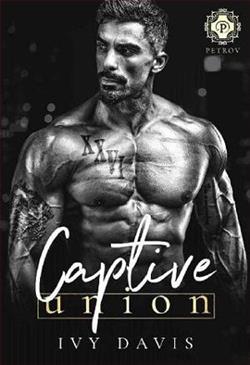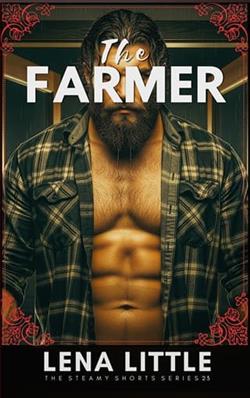Page 23 of The Trials of Alaric
Bea thought about that. “Not really,” she decided. “I have some of that with public assemblies in the town and when the local gentry invite us for dinner or a ball. I enjoy dressing in lovely gowns, and I love dancing. But it isn’t real, is it?”
Ellie frowned in puzzlement. “It isn’t?”
“I think I know what you mean,” Alaric said. “It is like sugared violets on a cake. They’re fun to have, but you can do without them, and still enjoy the cake. You would not like an endless diet of sugared violets, though.”
Bea nodded. She hadn’t known how to explain it, but Alaric’s example made sense to her.
“The life of a diplomat is almost all sugared violets, is it not?” Lord Lucas asked Alaric.
“A thick layer of them,” Alaric groaned, “and what’s underneath is not cake, but stale bread.”
That made them all laugh. Perhaps the metaphor was being stretched, but the comment certainly disclosed Alaric’s feelings about his former career.
“I see,” Ellie mused. “So, what do you regard as ‘real,’ Bea?”
Bea didn’t hesitate. “The Isle of Claddach and its people. I am to be the Lady of Claddach. I need to know my land and my people. What of you?”
“My family. Had I found a match in my one Season, it would have helped my sisters. Perhaps even my brothers, if I had married a man with influence or wealth.” She shrugged. “As it is, I helped my sisters by staying at home and letting them have their chance. Papa has six girls to settle, without impoverishing the family. It was best to stay home.” She colored slightly.
“But when Lady Claddach invited my father to send one of his daughters to this house party, we had a family meeting, and father and my brothers and sisters decided I was to come.” She glanced at Luke again and away. Bea understood what she had not said. Ellie’s family had assumed a house party might give her the opportunity to find a match without the expense of a Season or weeks of balls requiring many changes of clothing. How good it would be if whatever was developing between Luke and Ellie was, in Ellie’s words, real.
In fact, the sugared violet analogy worked very well. “I know what you mean, Ellie. I help teach at the dame school in the village. That is real. And I visit sick tenants and new mothers with Mama.” Or, these days, without Mama. “That is real, too, in a way that dances and gowns are not. But I think a sugared violet now and again is very pleasant.”
“What of you, Lord Lucas?” Bea asked.
“Luke, please, my lady,” he begged. “I hate all this milording. It is not, as you put it, real. What have I done to deserve beingcalled a lord? I was born third son to a duke, that’s all. It is a courtesy, particularly since Thorn, my brother, has three sons. And if you want to know what I think, the courtesy’s target is my father, rather than myself.”
He chuckled. “That was a little impassioned. Luke, if you would, Lady Beatrice.”
“I am Bea, and this is Alaric,” Bea told him.
“Not Al?” asked Luke.
“Definitely not Al,” said Alaric, firmly, and Luke laughed again.
Bea was not going to let him away without answering the question. “Your ‘real’?” she asked.
Luke turned serious then. “I’m still working on it,” he said. “Being a gentleman is mostly candied violets. I am tired of it. I thought perhaps Claddach? But…” He paused, his eyes holding Ellie’s. “My ideas have changed. There are not many jobs for gentlemen. I would make a terrible vicar. I do not know enough to be a land steward and I am not particularly interested. So, what is my ‘real’?”
He put out his hand toward Ellie, and she put her hand in his. “A wife. A family. And that means some way of making income. Ellie thinks I could be a politician. A lot of candied violets in that profession. But it is cake underneath, Alaric, to use your image. A member of Parliament can make a difference, I believe. We will think of something, won’t we, Ellie?”
“My dowry will help,” Ellie declared. “It is not huge. My father has ten children and needs to set three sons up in professions that will support them, without impoverishing the estates my eldest brother will inherit, so we girls have only modest dowries. But it will help.”
“In fact,” Luke said, “between my allowance from my father and Ellie’s dowry, I probably don’t need to work. We could live in genteel poverty. But…” He smiled and shrugged. “Candiedviolets. I need something to do that will feed my soul. Gad, that sounds so pretentious.”
Lord Lucas, Bea realized, was much more than the polished society gentleman than showed on the surface, and he was also embarrassed about showing his hidden depths. He turned the attention from himself now by saying, “Your turn, Al. What is your real, so to speak?”
Alaric was looking at the ocean, watching the waves. At the question, he turned his attention to Bea. “The land, I believe. When I was a boy, I was the one that trotted around after my father and his land steward, not my twin—who is the older and the heir. After university, I helped the steward, who was getting old and could no longer do all he used to. I thought that would be my life. I would stay on and take his place when he retired. I was happy.” He bent to pick up a pebble and tossed it to be swallowed up by a wave.
“So, what happened?” Luke asked.
“There was a girl,” Alaric said. He threw another pebble. He was avoiding their faces, Bea thought. “I was courting her. I brought her and her older brother on a visit to meet my father, and my brother.”
Another pebble soared over the waves and disappeared. “She married my older brother. The heir. My father decided I should leave. The envoy to Brazil is an old schoolmate of his, and my uncle is on the diplomatic mission, so…” A fourth pebble went the way of the rest. He turned to look at her, brushing sand from his palms by rubbing them together.
“Anyway, that is my story. If I win the trials and Bea will have me,” he sent her a lop-sided smile, “I shall gladly serve her and Claddach for the rest of my days. If not? I will look for a place somewhere as a land steward. The land is my real. I am tired of candied violets.”
Did he still love that girl, Bea wondered? For that matter, was his story true? He certainly seemed honest and sincere. But Aunt Joan had warned her that Society gentlemen were clever at dissembling. That was one reason Bea had never made her come out. Bea knew where she was with the men of Claddach. She’d known them all her life, for one thing. For another, most of them were simple folk who said what they meant and meant what they said. But how well did she know Alaric? Did he mean what he said, or was there more to his story than he’d allowed her to learn? And if so, when did he intend to tell her?















